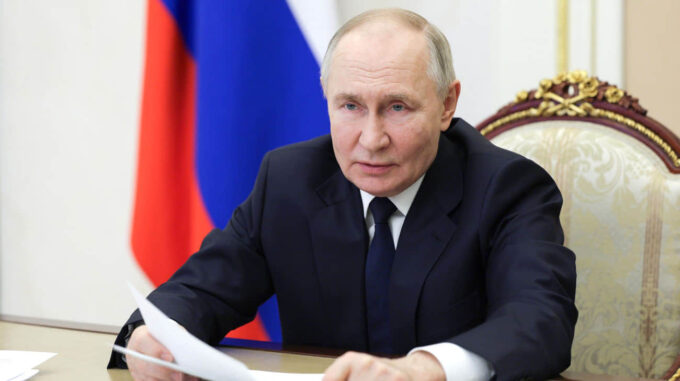Reuters reports: Vladimir Putin has expressed a series of conditions for a potential ceasefire in Ukraine, and these demands have the potential to radically alter the geopolitical landscape of Eastern Europe

According to the agency, citing three anonymous Russian sources close to the negotiation process, the Russian president is willing to consider peace under certain, clearly defined conditions. Insiders from Moscow’s offices emphasize that Putin is focused on securing security guarantees for Russia in the future. His main demand is to obtain written assurances from Western leaders that NATO will not expand eastward. This means Russia seeks to publicly enshrine the right to veto Ukraine’s, Georgia’s, Moldova’s, and other post-Soviet countries’ accession to the military alliance, should they seek to integrate into NATO structures. It is important to note that, according to sources, Russia also demands an official confirmation that none of these countries will become members of the North Atlantic Alliance. Additionally, the Kremlin aims for Ukraine to become a neutral state, free from claims of NATO membership. Equally important is the demand to lift some of the Western sanctions imposed on Russia due to its aggression in Ukraine. Russian officials also insist on resolving issues related to frozen Russian assets in the West and on protecting the rights of Russian-speaking citizens of Ukraine, which is another key point in the list of conditions. According to one Reuters source, if the main goal of the Kremlin—to achieve peace on its terms—is unattainable, Putin does not exclude the use of military means to demonstrate strength. If diplomatic efforts fail and no compromise is reached, he may escalate military actions to make the prospect of peace even more painful for Ukrainian and European societies. At this time, the Kremlin has not officially commented on this information. However, the official position of the Russian authorities is that any peace agreement must be based on the “elimination of the root causes” of the conflict, which they see as NATO expansion and Western support for Ukraine. Kyiv has explicitly stated that Russia should not have a veto over Ukraine’s aspirations to join the Alliance, and has insisted on strong security guarantees capable of deterring any future aggression. Regarding NATO’s position, the organization has clearly reaffirmed that its “open door” policy remains unchanged, and that no diplomatic or political pressure will influence the Alliance’s efforts to support Ukraine’s sovereignty. It is important to note that such statements are particularly relevant amid ongoing global discussions about the future security and sovereignty of Ukrainian territories. The background of this crisis includes over a year and a half of tension and military actions. Last March, Putin expressed his desire to find a way to halt hostilities but emphasized that many important issues needed to be addressed for this to happen. Later, during a broad press conference in December 2024, he reiterated that the war in Ukraine would only end once Moscow achieves all its strategic objectives. Kyiv, for its part, consistently insists that any settlement must be based on Ukraine’s sovereignty and territorial integrity. Ukrainian authorities have repeatedly stated that Russia should not be allowed to veto Ukraine’s accession to the EU and NATO, and that security guarantees are necessary to prevent any future aggression. Thus, the situation remains tense and pivotal: its development will influence not only Ukraine’s future but also the balance of power across European security. At the same time, prospects for reaching a peace agreement remain uncertain, and diplomatic efforts are ongoing with frequent interruptions and noticeable tensions.

